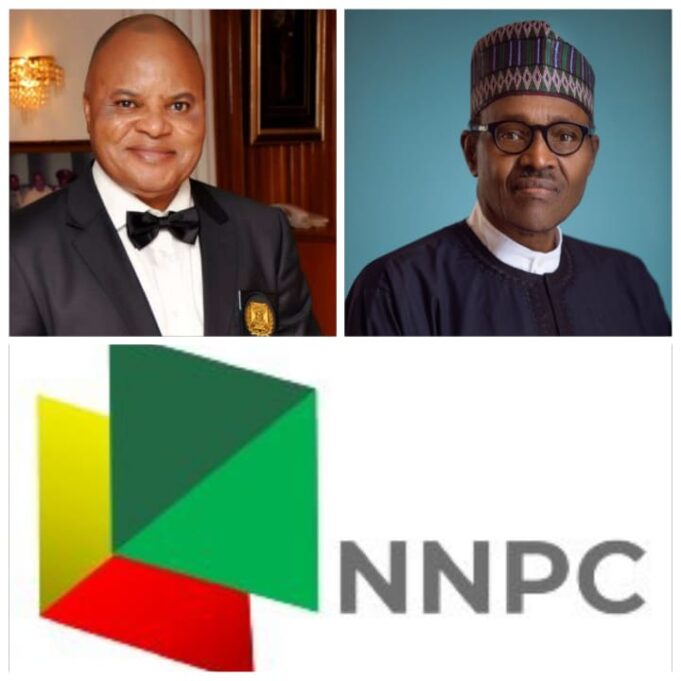By SUFUYAN OJEIFO
Before imaginations begin to run riot, let me quickly assure my readers that President Muhammadu Buhari is not in any danger whatsoever either in the hands of Senator Ifeanyi Godwin Araraume or in the hands of Vincent Adodo, who prefers to be referred to as a citizen of Nigeria, legal practitioner, Notary Public for Nigeria and public interest lawyer. It is, perhaps, on the linchpins of his citizenship of Nigeria and his interest in public matters that he has latched his locus to drag the President Muhammadu Buhari through the court, not to create but to cure a mischief that had escaped in Mr President’s writ-large violation of some extant laws by his embarking on medical tourism every time he had taken ill since stepping in the saddle as president without following the due process as provided in some extant laws, to wit: Section 145 (1) and (2) of the Constitution of the Federal Republic of Nigeria (as amended) and Section 46 of the National Health Act.
On his part, Araraume, unlike Adodo who is on a mission to defend the public interest, is dragging President Buhari through the court on a mission to fault the decision by the President to approve his removal as non-executive chairman of the Board of Directors of the Nigerian National Petroleum Corporation Limited, NNPCL, a CAMA company, without following the due process as circumscribed in the relevant extant laws. Significantly, Araraume toed that route because no reasons were adduced for his removal; thus feeling scandalized and rightly believing that well-meaning members of the society might be left to conjecture that his possible committal of some offences or wrongs could have led to the presidential decision to suddenly and shockingly determine his appointment.
Whereas, Araraume is principally interested in preserving his integrity for posterity, I am sure he would gladly return to his position as non-executive chairman of the Board of Directors of the NNPCL if the court resolves the matter of alleged wrongful removal in his favour. This may very well be adequate relief for him. His return would not disrupt processes; rather, it would strengthen the Board’s oversight advisory functions, more so that his name is still in the NNPCL registration documents at the Corporate Affairs Commission, CAC, as a director of the CAMA company. But for Adodo, it is his public spiritedness that is at stake. It may wane somewhat if his suit suffers a defeat. Again, it may not wane if the streak to fight for public good is truly innate in him. It could just be a tonic to take on more public interest issues.
Since both matters are before the court, I would not delve into their cruces in extenso as to prejudice the cases, since they are subjudice. But I would crave the indulgence of my readers to just point out an issue that has understandably caught my attention from the outset of both cases; and interestingly, it is the defendants’ notices of preliminary objections and submissions in their written addresses. One objection that ramifies through Araraume’s case against President Buhari (first defendant), NNPCL (second defendant) and Corporate Affairs Commission (third defendant); and, Adodo’s case against President (first defendant), Vice-president (second defendant) President of the Senate (third defendant), Speaker, House of Representatives (fourth defendant), The National Assembly (fifth defendant), Minister of Health (sixth defendant) and Attorney General of the Federation (seventh defendant) is the question of whether or not Mr President is a public officer.
Having largely, even if not closely, followed both cases, I have discovered that whereas in the case of Araraume, the notice of preliminary objections filed by the NNPCL, through its team of Senior Advocates of Nigeria (SANs)- Professor Konyinsola Ajayi and Etigwe Uwa, which appears to be largely in pari materia with the one filed by the President, is that the President had exercised the powers of his office as conferred on him by Section 2(a) of the Pubic Officers Protection Act Cap P41 LFN 2004 on appointment and removal and therefore could not be challenged for exercising his legally-enabled functions. It was on that ground that they filed the preliminary objection asking the court to dismiss the action as constituting an abuse of court process being one that was not supported by law, having regard to the provisions of the Interpretation Act, 2004.
The other grounds on which the preliminary objections were hinged were that the plaintiff’s (Araraume’s) action was statute barred, having regard to Section 2(a) of the Public Officers’ Protection Act Cap P41 LFN 2004. In their written address in support of the applicant’s notice of preliminary objection dated December 9, 2022, the NNPC counsel had argued with regard to whether the suit ought not to be dismissed for being statute barred thus: “my Lord, we submit that this Honourable Court is robbed of the jurisdiction to entertain this suit on the ground that the action is statute barred. By Section 2(a) of the Public Officers Protection Act Cap C41 LFN 2004 (POPA), no action or prosecution shall be instituted against a public officer unless it is commenced within three months after the act, neglect or default complained of, or in the case of continuance of damage or injury, within three months after the ceasing thereof. See Ezeani v. Nigerian Railway Corporation (2015) 3 NWLR (Pt 1445) pages145, 139 at paras D-F and Egbe v. Belgore (2004) 8 NWLR (Pt 875) 336 at 335 paras C-G. It is trite that once the jurisdiction of a court is challenged, the court will examine the originating processes together with the supporting documents filed in the action, in determining whether it has jurisdiction or should decline jurisdiction. See Onuorah v. KPRC (2005) 6 NWLR (Part 921) page 393 at 408 paras B-D.” Justice Inyang Ekwo will give comprehensive rulings in the matter on March 28, taking into account all the parties’ processes and applications filed, including the preliminary objections to the originating summons.
And in Adodo’s case, which came up on Tuesday, March 14, 2023 before Justice James Kolawole Omotosho (Federal High Court 9 in Abuja), the President, vice-president and the Attorney-General of the Federation had already submitted that the provisions of Section 46 of the National Health Act relied on by Adodo did not apply to the President of the Federal Republic of Nigeria as he is not a Public Officer pursuant to Section 318 of the 1999 Constitution for the National Health Act to apply to him. Section 46 of the National Health Act, according to them, read: “Without prejudice to the right of any Nigerian to seek medical check-up, investigation or treatment anywhere within and outside Nigeria, no public officer of the Government of the Federation or any part thereof shall be sponsored for check-up, investigation or treatment abroad at public expense except in exceptional cases on the recommendation and referral by the medical board and which recommendation or referral shall be duly approved by the minister or the commissioner as the case may be.” This is Adodo’s gravamen against the President, to wit: that he never observed the process laid out in the Act.
But read the submission of the President’s counsel, and I will round off: “It is settled rule of interpretation that where words are clear and unambiguous that the court should give or apply its ordinary meaning. We commend your lordship to the case of Dara & Anor v, Alagboso & Ors (2015) LPELR-25672 (CA). We submit that the provisions of Section 46 of the National Health Act are clear that it is only a public officer of the government of the federation that the provision applies to. We urge your lordship to apply the ordinary meaning to the said provision and uphold our argument that the provisions of Section 46 of the National Health Act is only applicable to Public Officers and the President of the Federal Republic of Nigeria is not a Public Officer.” So, if the President is not a Public Officer, what then is he?
READ ALSO: El-Rufai: I’ll expose ex-govs who looted Kaduna funds
In Araraume’s case, the president enjoys the approbation of the status of a public officer to perform a function of hiring and firing under the Public Officers Protection Act Cap C41 LFN 2004 (POPA) and to determine the time within which to challenge his administrative acts. In Adodo’s case, the President reprobates, dismounting the public officer’s horse to be able to sidestep the obligatory provisions of Section 46 of the National Health Act.
Methinks the president is caught in between Araraume and Adodo, and this is significant and salutary to effort at expounding the relevant laws and not necessarily expanding them. But, not to worry, the Bench will rule one way or another to untangle the seeming gordian knot tied by parties and their counsels around the office of the President in two different and separate cases before Justices Ekwo and Omotosho in the same Abuja Judicial Division of the Federal High Court. We wait on their Lordships to interpret the relevant statutes in the circumstance.
*Ojeifo writes from Abuja via [email protected]
- Ijaw youths raise the alarm: Oil thieves after Kyari, Tompolo, Otuaro - December 22, 2024
- Abuja stampede: Wike commiserates with victims, directs free treatment - December 21, 2024
- Uba Sani Signs Executive Order, raises academics’ retirement age to 65 - December 20, 2024










